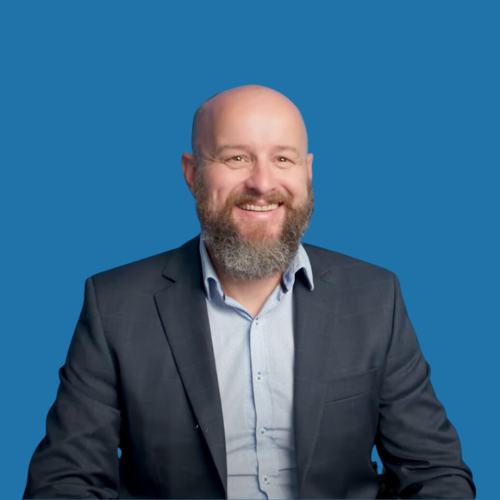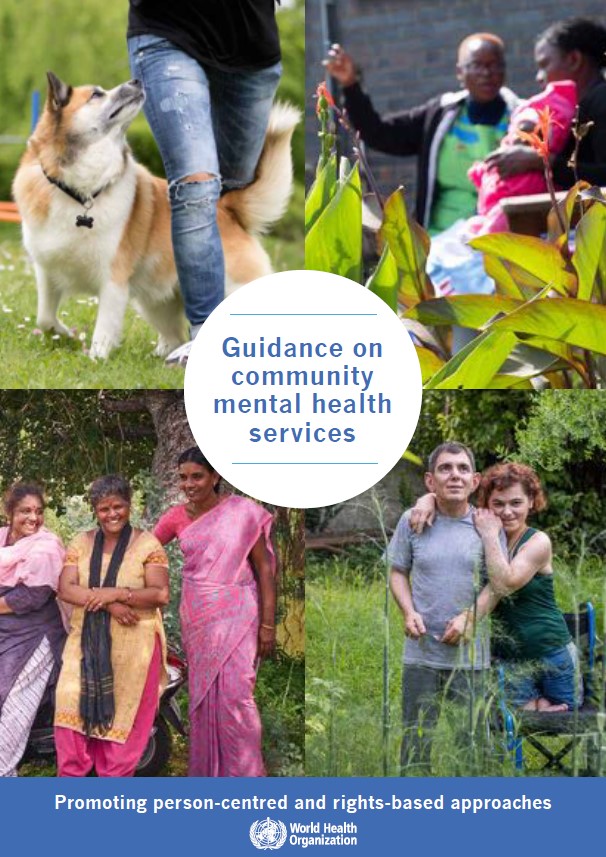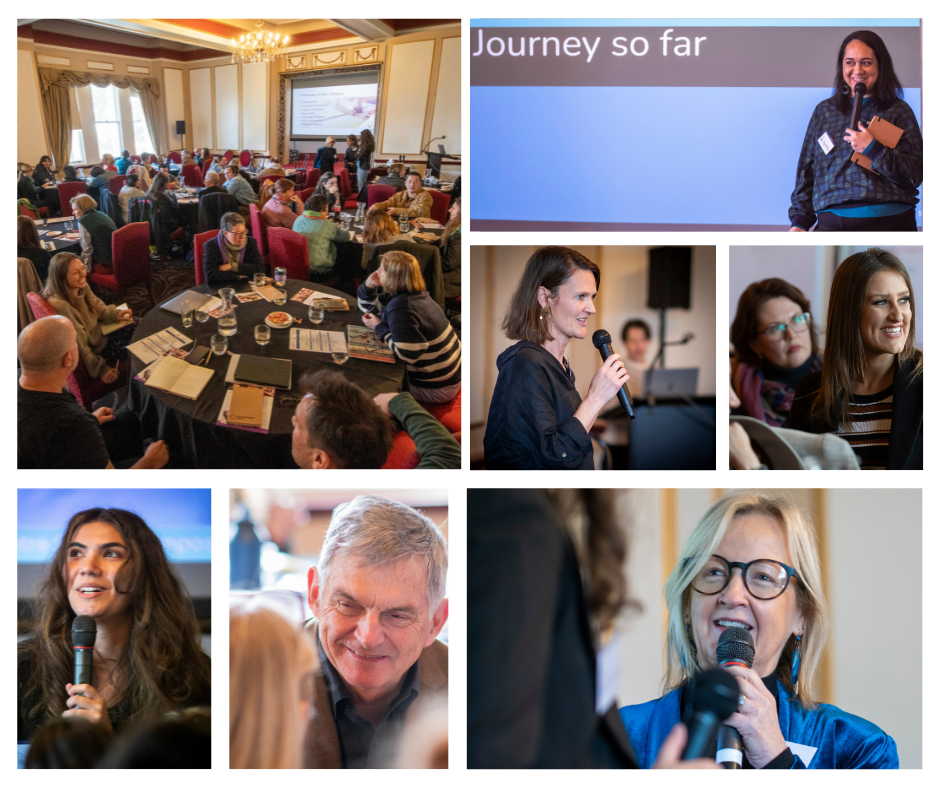Perspectives
Welcome to the October 2024 edition of Perspectives!
Some highlights from our October issue include information on upcoming events, including our free one-day Online Discovery Workshop and our Townsville Discovery Day, an overview of Open Dialogue as an internationally recommended practice by the World Health Organisation, a chat with Stephen Lewin, CEO of Youth Insearch and a recap of our first School Symposium!

Remember to register for our free One Day Online Discovery Workshop!
A reminder for those who haven’t already registered for our October 14th Free Online Discovery Workshop to do so!
This interactive workshop is designed for a diverse range of leaders and teams interested in Open Dialogue. The day will be highly engaging and beneficial to those wanting to learn more about Open Dialogue foundations and principles and how the approach works in a range of mental health services and schools. The day will be facilitated by our ODC Head of Training, Mark Hopfenbeck, with guest speakers:
Shubhangi Kaushik – Head of Partnerships and Programs (Open Dialogue Centre) & Registered Psychologist
Tom Cant – Consultant Psychiatrist (Bay of Plenty, NZ) & Peer Supported Open Dialogue Facilitator
Sarah Farrell-Whelan – Social Worker & WellBeing Coordinator (Korowal School)
If you’re interested, please register for the event no later than October 7th.

Perspectives - Stephen Lewin
Stephen Lewin is the CEO of Youth Insearch, a peer-led youth trauma recovery organisation, dedicated to supporting at-risk youth aged 12-25.
Youth Insearch is currently in 30 communities around Australia, and continually building their lived experience peer workforce.
ODC talked to Stephen about his own lived experience, how Youth Insearch use trauma-assumed practice and how this connects with the Open Dialogue approach.
In his teenage years, Stephen experienced living on the streets of Wagga Wagga, NSW and was arrested for committing crime for an adult on bail. A juvenile justice officer on his case referred him to the Youth Insearch program where he found for the first time people were asking what happened to him throughout his youth, rather than what was wrong with him.
Being surrounded by a group of people with similar experiences, Stephen was able to talk to his peers and rapidly build trust, communication and self-esteem in a strengths-based way. He went from being a youth leader, to a program staff member, and later in his career general manager and then CEO of Youth Insearch.
“Working in a way that aligns with Open Dialogue has been a big shift for our organisation; before we were more about narrative therapy and trying to help the young person interrogate their trauma in a clinical sense, but we have had to slow down and be curious.
As leading peer work advocate, Faye Jackson says, it is useful to switch the terminology from ‘trauma informed’ to ‘trauma-assumed’ practice. We assume everyone has had some type of trauma and then start at that point rather than trying to work out whether they’ve experienced trauma after we start working with them.
Open Dialogue is about being gentle, rather than being a clinical expert and trying to get the young person to talk about their trauma just because we think they need to talk about it. We also encourage safe storytelling. The way OD is facilitated is where gentleness comes in by providing a safe space and being patient. It allows us to acknowledge that young people own their story and are free to choose when and how much they want to share at any time.
We have a long-term plan to embed dialogical practice in all we do. We want to build capacity by engaging as many social workers and peer workers as possible to participate in the Open Dialogue One Year Foundation Course to be able to work with Open Dialogue in a way that is solid and sustainable. Open Dialogue is a great fit in terms of group work and ensuring the expert is the young person, their family and their network, rather than the clinician. As a long-term vision, we can see Open Dialogue being used more broadly than providing mental health support. We can see an opportunity to use its principles in out-of-home care and youth justice, focusing on building strong relationships within the immediate network around young people and families, rather than segmenting support and having separate expert teams for different parts of the young person’s journey.”
Stephen Lewin, CEO – Youth Insearch Australia
Open Dialogue Discovery Day in Townsville
The Open Dialogue Centre is hosting a free Discovery Day in Townsville, Queensland on the 17th of October. This is open to anyone from the Townsville community who is interested in learning about Open Dialogue! Click the link below to register and find out more:
Research Spotlight Open Dialogue as an internationally recommended practice

Open Dialogue is continually being recognised internationally as an approach that works in community focused mental health services. The World Health Organisation and the United Nations support the adoption of Open Dialogue.
Both organisations have recently clearly called for a significant shift away from the biomedical model of mental health in ‘Mental health, human rights and legislation: Guidance and practice’ (2023), describing it as a model that focuses too heavily on diagnoses, medication, forced treatment and institutionalisation and outlines some of the harms associated with this.
Further back in the 2021 publication ‘Guidance on community mental health services – Promoting person-centred and rights-based approaches’, the WHO explicitly identifies the Open Dialogue approach and the Open Dialogue Crisis Service in Finland as an example of good practice consistent with person-centred and rights-based care in community mental health services and crisis services. The report highlights the flexibility, mobility and continuity of care that Open Dialogue promotes as well as the ability for people to have self-determination over their care.
The Guidance calls for a focus on scaling up community based mental health services, whilst eliminating the use of coercive practices such as forced admission and forced treatment, and tackling the power imbalances that exist between health staff and people using the services.
School Symposium Recap!

Photo credit: Tim Barnsley
Unlocking the power of student voice and community connection, our first School Symposium in partnership with Korowal School was a great day spent introducing the role of Open Dialogue to transform how we think about mental health and wellbeing in schools.
Thank you to everyone who joined us!
For those who missed us: Korowal School has been on a five-year journey to elevate student voice, family engagement and connection in their school community.
Here are some highlights from the day:
We had a range of attendees from school leaders, educators and wellbeing staff to government members and young people from across Victoria and New South Wales.
We heard from Hayley McQuire, CEO of the National Indigenous Youth Education Coalition about her work developing Indigenous education charters to ensure learning systems are designed for self-determined futures.
Tyrah, Noah and Meg shared their personal lived experiences with wellbeing and school.
Staff members from Korowal School took us through their journey and how they work in alignment with each principle of Open Dialogue.
We got to explore the dynamics of a network meeting facilitated by Sarah Farrell-Whelan, involving staff, students and parents.
We workshopped the potential next steps of Open Dialogue in different areas of the school community by splitting into groups and collaborating in dialogical discussions.
Korowal has set an inspiring example of how the Open Dialogue approach can be transformative for a school, and ODC is now exploring how the approach can be adapted to suit any school in a way that is locally and culturally informed.
If you’d like to know more about Open Dialogue, or how we are partnering with schools to grow the approach, contact schools@opendialoguecentre.org.au

The Under Pressure: Australia’s Mental Health Emergency report revealed in early 2023 that three out of four mental health clinicians now have waiting lists, with more than half of clients waiting four to six weeks and more than a quarter waiting more than two months. 73% of those mental health professionals working in cities have a waiting list, and according to the Royal Australian College of General Practitioners, more than 90% of psychologists say the workforce crisis is negatively impacting patient care.
Responsiveness (or immediate help) is one of the organisational principles of Open Dialogue, and ensures prompt responses to people when they make contact for help, regardless of the situation being presented. It aims to have the first network meeting arranged as soon as possible, ideally within 24 hours. The person who calls the meeting is present and involved in arranging these meetings from the start, creating a sense of security from the outset and setting up a firm foundation for community and network meeting based care.
Supporting the workforce through Open Dialogue
The Department of Health has indicated that all those with a profession (nurses, psychiatrists, psychologists, counsellors, peer workers) in the mental health sector are under strain from poor conditions in terms of high administrative burdens, stress and burnout, negative workplace cultures, pay and career progression. There is clearly an issue with the number of mental health workers we have here in Australia as compared to those experiencing mental distress, resulting in high levels of strain for the system.
Open Dialogue embraces the opportunity to utilise the peer workforce as well as other social network members to create collaborative teams of care, reducing burden on clinicians alone.
ODC is supporting organisations to implement Open Dialogue in a way that is sustainable – enabling long-term benefits for the workforce including better retention, satisfaction and a way to address burnout.
Get involved as a supporter or find out more
We invite interest from new supporters as we expand the potential for Open Dialogue to meet the increasing demand for new approaches in mental health care.

